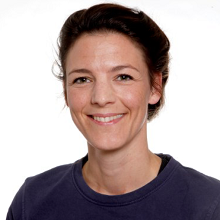The eDialogue Project
Current communication pathways after hospital discharge are slow, inefficient and cause frustration among patients and healthcare professionals. Moreover, patient safety is compromised when important knowledge is not timely shared or treatment regimens are not understood. After discharge orthopaedic surgery patients often have questions or concerns leading them to call healthcare professionals across the healthcare system, e.g., the general practitioner, home care nurses, the outpatient clinic, hospital wards etc. Most often they get a hold of a secretary and are re-directed several times, before they get a hold of healthcare professionals who know them. Poor patient communication and interdisciplinary communication across sectors contributes to a lack of coherence in the healthcare system. As expressed by patient’s and relatives at a preliminary workshop held at Aalborg University Hospital in 2020; “They (healthcare professionals across sectors) do not talk to each other”, “I lost track of my treatment plan” and “It is hard to get a hold of the right person when needed”.
By using digital communication in texts and pictures, where patients, hospital staff and staff from the municipality can communicate, we believe it will be easier for the patient to get clarification on a question, and the coordination and knowledge sharing between the hospital and the municipality will be more flexible and individualized. The advantage of using digital communication is that it can happen asynchronously, meaning the patient and healthcare professional do not have to be present at the same time. This flexibility may be convenient and save time for both patients and healthcare professionals. At the same time, the patient is placed at the center of communication, which we believe may empower patients and their relatives, and maybe even health professionals across sectors.
In the eDialogue studies, we explore the need for digital communication after orthopaedic surgery and discharge as percieved by patients, relatives and healthcare professionals across sectors. Subsequently, we investigate whether the use of digital communication can reduce the need for other unplanned healthcare contacts after discharge. Patient-centered effects such as continuity of care and the feeling of security and satisfaction after hospital discharge is also investigated.
Below you can watch a one minute video about the project (in Danish):
Lili Worre

Lili Worre
Project manager, nurse and PhD-student
Orthopedic Surgery Department
Aalborg University Hospital
lili.jensen@rn.dk
Opdateret


